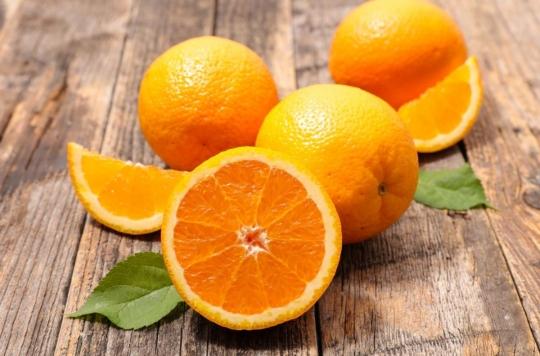Oranges and tangerines, fruits close to mandarins, contain a molecule called nobiletin. It would be able to reduce insulin resistance and cholesterol.

- A molecule of certain citrus fruits could act against obesity
- This is nobiletin, contained in oranges and tangerines
- Obesity increases the risk of diabetes, cardiovascular disease and cancer
To keep the line, eat citrus fruits! Canadian researchers have discovered that a molecule contained in oranges and tangerines, nobiletin, protects against obesity and its side effects. In the review Journal of Lipid Researchthey detail their discovery.
Thinner and less sick mice
“We have shown that in mice that already have all the obesity-related symptoms, we can use nobiletin to reverse them and even start reducing the plaques in the arteries that cause atherosclerosis.”, says Murray Huff. This professor has studied the effects of nobiletin for more than ten years. In his new study, he gave it to mice fed a diet high in fat and cholesterol. They were slimmer and had lower levels of insulin resistance and lower cholesterol than mice that followed the same dietary protocol without taking the molecule.
How does nobiletin work?
The link between these citrus fruits and obesity remains mysterious. Researchers have yet to clearly identify how nobiletin works. They speculate that it affects how fat is regulated by the body. Scientists first thought that it could act on AMPK, for “AMP-activated protein kinase”: this enzyme transforms fat into energy and blocks fat storage. A test was carried out on mice in which this enzyme does not exist: the same beneficial effects of nobiletin were observed. “This result proved to us that nobiletin does not act on AMPK, therefore it passes through the main regulator of fat in the body”, details the scientist. With his team, they are still trying to understand the mode of action of the molecule.
In the world, 13% of adults suffer from obesity and 17% of the adult population in France. Obesity increases the risk of developing type 2 diabetes, cardiovascular disease, kidney disease or certain types of cancer.

.















